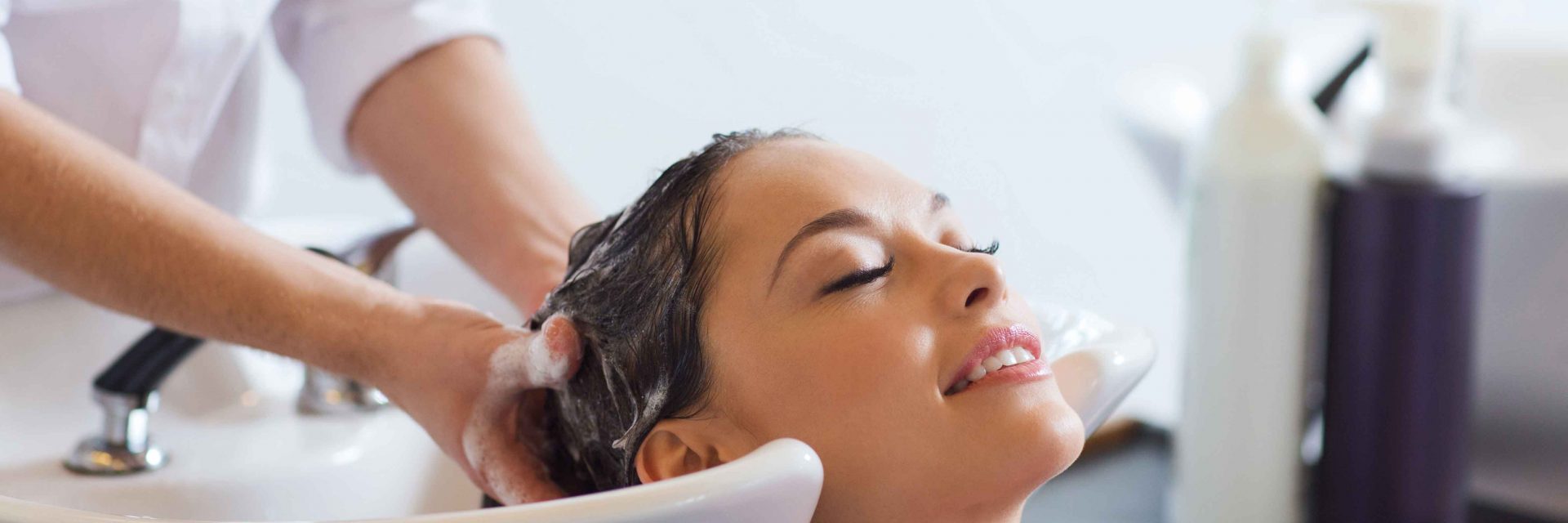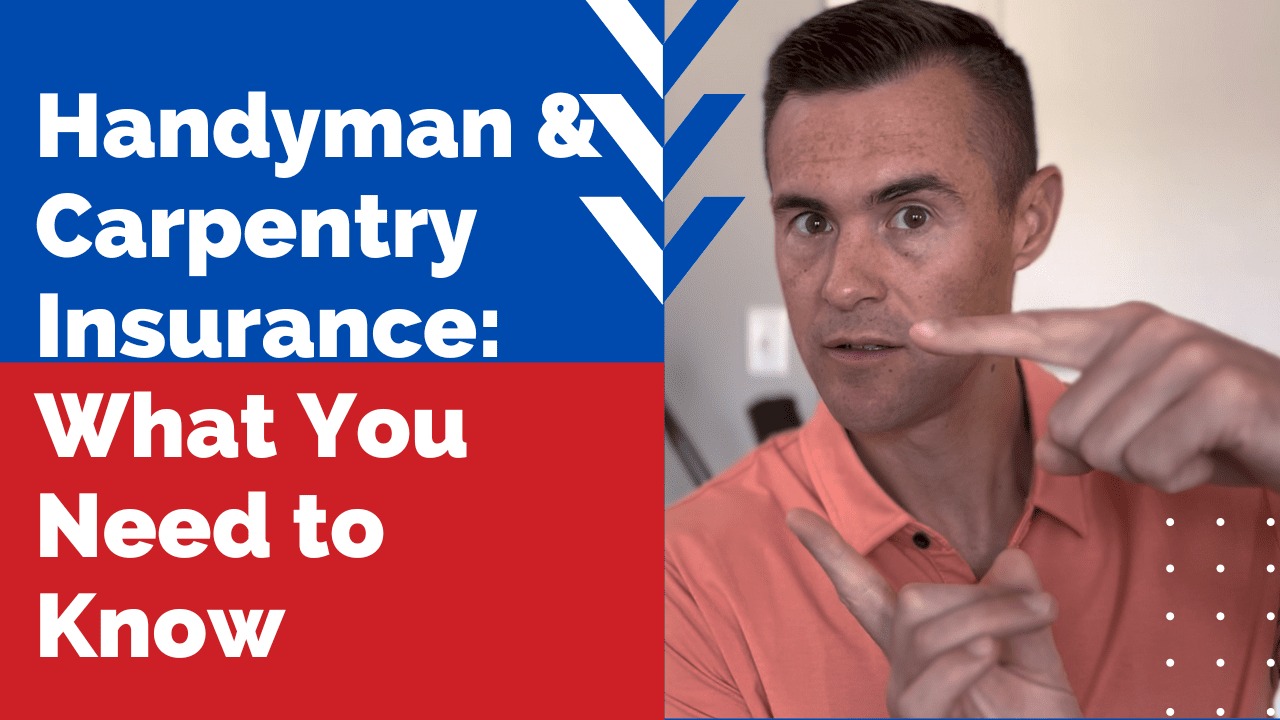

Finance
What Kind Of Insurance Does A Hair Salon Need?
Published: November 16, 2023
Looking for insurance for your hair salon? Discover the essential coverage options to protect your business's financial well-being.
(Many of the links in this article redirect to a specific reviewed product. Your purchase of these products through affiliate links helps to generate commission for LiveWell, at no extra cost. Learn more)
Table of Contents
Introduction
Welcome to the thrilling world of hair salons! As an owner or operator of a hair salon, it’s crucial to understand the importance of having the right insurance coverage to protect your business from unforeseen circumstances. Hair salons are unique environments where clients trust professionals to provide them with beauty services, and with that comes certain risks. From accidents on the premises to liability claims, having the proper insurance can provide you with peace of mind and financial security.
In this article, we will explore the different types of insurance coverage that a hair salon needs to consider. While every salon is different and may have specific needs, these general types of insurance are essential for most hair salons to protect against common risks and liabilities.
Before we delve into the specific types of insurance, let’s discuss why coverage is necessary. Running a hair salon involves numerous potential risks. Accidents can happen, whether it’s a slip and fall on a wet floor, an allergic reaction to hair products, or even a cutting mishap during a hairdressing session. These incidents can result in injuries to clients, employees, or damage to property. Without insurance, the financial burden of these events could be overwhelming and potentially bankrupt your salon.
Furthermore, salons are also vulnerable to liability claims. Whether it’s a dissatisfied customer claiming a bad haircut or a client alleging a hair treatment caused damage to their hair, these claims can lead to costly legal battles. Insurance coverage can help protect against these allegations and provide the necessary resources to navigate the legal process.
Now that we understand the importance of insurance, let’s explore the specific types of coverage that a hair salon should consider. From liability insurance to property coverage, we will outline the insurance policies that can safeguard your salon and give you peace of mind to focus on what you do best – making your clients look and feel fabulous.
Liability Insurance
Liability insurance is one of the most critical types of insurance for a hair salon. It protects the salon from legal claims and financial losses resulting from accidents or injuries that occur on the premises. There are two primary types of liability insurance that a hair salon should consider: general liability insurance and professional liability insurance.
General Liability Insurance:
General liability insurance, also known as commercial general liability (CGL) insurance, provides coverage for third-party injuries or property damage that occur in your hair salon. For example, if a client slips on a wet floor and injures themselves or if a stylist accidentally damages a client’s personal belongings, general liability insurance will help cover the costs associated with these incidents.
This insurance also protects against claims of libel, slander, or false advertising. In a hair salon setting, this could include allegations of inappropriate or offensive behavior by salon staff or claims of misleading advertising regarding the salon’s services. General liability insurance can help cover legal fees, settlements, and judgments resulting from these claims.
Professional Liability Insurance:
Professional liability insurance, also known as errors and omissions (E&O) insurance, is specific to professionals who provide services or advice, such as hairstylists or estheticians. This insurance protects against claims alleging negligence, mistakes, or failures in the services provided. For example, if a client claims that a stylist damaged their hair during a coloring treatment or a facial caused an allergic reaction, professional liability insurance can help cover the costs of defending against these claims and any resulting damages or settlements.
It’s important to note that general liability insurance may not cover claims related to professional negligence. Therefore, having professional liability insurance in addition to general liability insurance is crucial for comprehensive coverage in a hair salon.
Whether it’s a slip and fall accident or a claim of professional negligence, liability insurance provides the necessary protection for a hair salon. It covers legal fees, medical expenses, and any damages or settlements that may arise from these incidents. Without liability insurance, a hair salon could face substantial financial losses, and the livelihood of the business could be threatened.
Next, let’s explore another important type of insurance for a hair salon: property insurance.
Property Insurance
Property insurance is essential for a hair salon as it protects the physical assets of the business, including the building, equipment, furnishings, and inventory, from various perils such as fire, theft, vandalism, and natural disasters. This insurance provides coverage for repairing or replacing property that is damaged, stolen, or destroyed.
When it comes to property insurance for a hair salon, there are two main types to consider: building insurance and contents insurance.
Building Insurance:
Building insurance covers the structure of the salon premises, including the walls, roof, floors, and any permanent fixtures or installations. If a fire, storm, or other covered peril damages the building, this insurance will help cover the costs of repairing or rebuilding it. Building insurance is especially crucial if you own the property or have invested in significant leasehold improvements.
Contents Insurance:
Contents insurance, also known as business personal property insurance, covers the salon’s inventory, equipment, and furnishings. This includes chairs, styling stations, hairdryers, scissors, products, and more. If these items are damaged, stolen, or destroyed due to a covered peril, contents insurance will help cover the cost of replacing or repairing them.
It’s important to note that property insurance typically comes with certain limits and deductibles. You should carefully assess your salon’s assets and their value to ensure that you have adequate coverage. Conducting a thorough inventory and keeping accurate records of your salon’s equipment and inventory is crucial in the event of a claim.
In addition to protecting your physical assets, property insurance also often includes coverage for business interruption. In the event that your salon is temporarily unable to operate due to a covered event, such as a fire or water damage, business interruption insurance can provide coverage for lost income, ongoing expenses, and even relocation costs while your salon is being repaired or rebuilt.
Having property insurance ensures that your hair salon can recover from a variety of unexpected events, safeguarding your investment and allowing you to resume operations as quickly as possible. Now that we’ve covered property insurance, let’s move on to business interruption insurance.
Business Interruption Insurance
Business interruption insurance is a crucial type of coverage for a hair salon as it provides financial protection in the event that your business operations are temporarily halted or disrupted due to unforeseen circumstances, such as a fire, natural disaster, or other covered perils. While property insurance helps cover the physical damage to your salon, business interruption insurance focuses on mitigating the financial impact of these disruptions.
When a hair salon is forced to suspend operations, regular income can be severely impacted. Business interruption insurance helps bridge the gap by covering lost income, ongoing expenses, and even relocation costs, allowing you to continue meeting financial obligations and maintain stability during the interruption period.
This type of insurance typically covers three key aspects:
- Lost Revenue: Business interruption insurance helps compensate for the income your salon would have generated if it had not been interrupted. This includes revenue from services, retail sales, and other sources of income.
- Operating Expenses: All the ongoing expenses necessary to keep your salon running, such as rent or mortgage payments, utilities, salaries, and other regular operating costs, may be included in business interruption coverage.
- Relocation Costs: In some cases, if your salon needs to temporarily relocate while repairs are being made to the original premises, business interruption insurance may cover the additional expenses associated with the move, including rent, utilities, and equipment setup.
It’s important to note that business interruption insurance typically has a waiting period before coverage kicks in. This waiting period is often 48-72 hours, so it’s crucial to have sufficient savings or a backup plan to cover expenses during this time.
Having business interruption insurance can make a significant difference in the recovery and survival of your hair salon following a disruption. It can help you maintain financial stability, keep your employees paid, and ensure that you can get back on your feet as quickly as possible. While it may not fully eliminate the challenges of an interruption, it can alleviate some of the financial burdens and provide peace of mind.
Now that we’ve covered business interruption insurance, let’s explore another important type of coverage for a hair salon: workers’ compensation insurance.
Workers’ Compensation Insurance
Workers’ compensation insurance is a vital type of coverage for a hair salon that provides protection to employees in the event of work-related injuries or illnesses. It is designed to cover medical expenses, lost wages, rehabilitation costs, and disability benefits for employees who suffer from job-related injuries or illnesses. This insurance not only benefits your employees but also protects your business from potential lawsuits and financial liability.
In a hair salon setting, there are various potential risks that employees may encounter, such as slips and falls, chemical exposures, repetitive motion injuries, or muscle strains. Workers’ compensation insurance ensures that employees who suffer from such injuries receive the necessary medical care and income replacement while they recover.
Some key benefits of workers’ compensation insurance include:
- Medical Expenses: Workers’ compensation insurance covers the medical costs associated with work-related injuries or illnesses. This can include doctor’s visits, hospital stays, surgeries, medications, physical therapy, and any other necessary medical treatments.
- Lost Wages: If an employee is unable to work due to a work-related injury or illness, workers’ compensation insurance provides income replacement, typically covering a percentage of their average weekly wages. This ensures that employees can still meet their financial obligations while they recover.
- Disability Benefits: In cases where an employee suffers a permanent or long-term disability as a result of a work-related injury, workers’ compensation insurance may provide disability benefits to help compensate for the loss of earning potential.
- Legal Protection: By providing workers’ compensation coverage, you can protect your business from potential lawsuits related to workplace injuries. Employees who accept workers’ compensation benefits are generally not allowed to sue their employer for the injury, preventing costly legal battles.
Workers’ compensation insurance is typically required by law in most states for businesses that have employees. It helps ensure that employees are cared for and supported when accidents happen on the job, and it demonstrates your commitment as an employer to their well-being.
It’s important to work with an insurance professional to understand the specific workers’ compensation requirements in your state and industry. They can help you navigate the regulations and find appropriate coverage based on the size of your salon and the nature of your operations.
Now that we’ve covered workers’ compensation insurance, let’s explore another crucial type of coverage for a hair salon: professional liability insurance.
Professional Liability Insurance
Professional liability insurance, also known as errors and omissions (E&O) insurance, is a vital coverage for a hair salon that specifically protects against claims of professional negligence, mistakes, or failures in the services provided. In the salon industry, where clients trust professionals to provide them with beauty services, professional liability insurance is essential for safeguarding your business and reputation.
As a hair salon owner, you and your staff are considered professionals providing expertise and advice to clients. However, there is always a risk of something going wrong during a service. Whether it’s a hair color mishap, a cutting mistake, an allergic reaction to a product, or any other error, clients may hold you responsible for the resulting damages.
Professional liability insurance provides coverage for legal defense costs, settlements, and judgments if you are found liable for a client’s financial losses or injuries. This insurance can help protect your salon from the financial consequences of potential lawsuits and the reputational damage that can arise from such incidents.
Here are a few key points about professional liability insurance for a hair salon:
- Claims Coverage: Professional liability insurance covers claims and lawsuits related to professional mistakes, errors, or omissions made by you or your salon staff. This includes claims of negligence, defective products, misrepresentation, and breaches of professional duty.
- Legal Expenses: If a client files a claim against your salon, professional liability insurance can help cover the legal fees associated with defending the claim. This includes hiring lawyers, court costs, and other legal expenses.
- Financial Protection: In the event that your salon is found liable for damages or injuries caused to a client, professional liability insurance can provide the necessary financial resources to pay for settlements or judgments. This ensures that your salon’s assets and financial stability are protected.
- Reputation Management: Being involved in a lawsuit can damage the reputation of your salon. With professional liability insurance, you can access resources to handle crisis communication and public relations to help mitigate any negative impact on your salon’s reputation.
Professional liability insurance is not typically included in general liability insurance policies, so it’s essential to obtain separate coverage to protect your salon from claims related to professional services. Working in a highly skilled profession like hairstyling requires a comprehensive insurance plan that includes professional liability coverage.
Remember, mistakes can happen even to the most experienced professionals. By investing in professional liability insurance, you are taking proactive steps to protect your salon, your employees, and your clients from potential financial and legal repercussions.
Now that we’ve covered professional liability insurance, let’s move on to another important coverage option for a hair salon: a Business Owner’s Policy (BOP).
Business Owner’s Policy (BOP)
A Business Owner’s Policy (BOP) is a comprehensive insurance package that combines several types of coverage into one convenient policy, tailored to meet the needs of small to medium-sized businesses, including hair salons. This policy typically includes general liability insurance, property insurance, and may also offer additional coverages specific to your salon’s needs.
Here are the key components of a Business Owner’s Policy:
- General Liability Insurance: This coverage protects your salon against third-party claims for bodily injury, property damage, or personal injury. Whether it’s a slip and fall accident or a claim of misleading advertising, general liability insurance included in a BOP helps cover legal costs, medical expenses, and any settlements or judgments.
- Property Insurance: Property insurance included in a BOP provides coverage for your salon’s physical assets, including the building, equipment, furnishings, and inventory. It protects against perils like fire, theft, or vandalism, and can help cover the costs of repairing or replacing damaged or stolen property.
- Business Interruption Insurance: Many BOPs also include business interruption insurance, which helps cover the loss of income and ongoing expenses if your salon is forced to temporarily cease operations due to a covered event, such as a fire or natural disaster.
- Additional Coverages: Depending on the insurance provider and policy, a BOP may offer additional coverages specific to the needs of your salon. This could include coverage for equipment breakdown, employee dishonesty, or even cyber liability insurance to protect against data breaches.
By bundling multiple coverages into a single Business Owner’s Policy, you can often save on costs compared to purchasing each type of coverage separately. Additionally, a BOP provides the convenience of having all your essential coverages in one policy, making it easier to manage and ensuring there are no gaps in your insurance protection.
It’s crucial to review the details of a BOP to ensure that it meets the specific needs of your hair salon. Consider the value of your property and equipment, the level of potential liability risks, and any additional coverages that may be important for your salon’s operations. Working with an insurance professional can help you tailor a BOP to fit your specific requirements.
Having a Business Owner’s Policy provides comprehensive coverage for your salon, protecting your assets, providing liability protection, and helping you recover in the event of interruptions or accidents. It offers peace of mind, allowing you to focus on running your salon and serving your clients.
Now that we’ve explored the benefits of a Business Owner’s Policy, let’s discuss another important coverage option for a hair salon: Employment Practices Liability Insurance (EPLI).
Employment Practices Liability Insurance (EPLI)
Employment Practices Liability Insurance (EPLI) is a type of coverage that protects businesses, including hair salons, against claims made by employees alleging wrongful employment practices. Running a hair salon involves managing a team of employees, and unfortunately, disputes or allegations can arise in the employer-employee relationship. EPLI provides financial protection and legal defense in the event of such claims.
Here are some key points to understand about Employment Practices Liability Insurance:
- Claims Covered: EPLI covers a range of employee-related claims, including allegations of discrimination, harassment, wrongful termination, retaliation, or violation of employment laws.
- Legal Defense Costs: EPLI helps cover the costs of legal defense if your salon faces a claim. This includes attorney fees, court costs, and settlement or judgment amounts, up to the policy’s limits.
- Employee Lawsuits: In the event that an employee files a lawsuit against your salon, EPLI provides financial protection. It can help cover damages awarded by a court or settlement costs agreed upon during legal negotiations.
- Protection for Employers: EPLI is designed to protect businesses and their owners from financial losses resulting from employee-related claims. It provides coverage for both current and former employees, ensuring that you are protected even after an employee has left your salon.
Employment practices liability claims can have a significant impact on a hair salon’s financial stability and reputation. Defending against such claims can be expensive, time-consuming, and can damage the relationship between the salon and its employees. Having EPLI coverage helps mitigate these risks and provides the necessary resources to navigate the legal process.
It’s important to note that EPLI coverage typically has specific exclusions and limitations. It’s essential to review the policy carefully to understand what is covered and what is not. Additionally, it’s crucial for salon owners to establish clear employment practices and provide thorough employee training to minimize the risk of claims and allegations.
While no business owner wants to anticipate employee-related disputes, having Employment Practices Liability Insurance is a prudent measure to protect your hair salon from potential financial losses and reputational damage. It demonstrates that you prioritize fair employment practices and are committed to creating a positive work environment for your team.
Now that we’ve discussed Employment Practices Liability Insurance, let’s move on to the importance of Cyber Liability Insurance for a hair salon.
Cyber Liability Insurance
In today’s digital age, where businesses heavily rely on technology and store sensitive data electronically, cyber threats and data breaches are becoming increasingly common. Hair salons, like any other business, are vulnerable to cyber attacks and data breaches. Cyber Liability Insurance provides protection against the financial losses and legal liabilities that can arise from such incidents.
Here are some key points to understand about Cyber Liability Insurance:
- Data Breach Coverage: Cyber Liability Insurance helps cover the costs associated with a data breach, including notification and credit monitoring for affected individuals, public relations efforts, investigation expenses, and legal expenses.
- Financial Losses: Cyber attacks can lead to financial losses, such as theft of funds or unauthorized transfers. Cyber Liability Insurance can help cover these losses, minimizing the financial impact on your salon.
- Third-Party Liability: If a data breach or cyber attack leads to a lawsuit filed by affected individuals or other parties, Cyber Liability Insurance can provide coverage for legal defense costs, settlements, or judgments.
- Business Interruption: Cyber attacks can disrupt your salon’s operations, leading to loss of income and added expenses. Cyber Liability Insurance may provide coverage for business interruption, helping you recover lost income and cover ongoing expenses during the disruption.
- Reputation Management: A cyber breach can damage your salon’s reputation and erode client trust. Cyber Liability Insurance can offer resources to handle PR and communication efforts to help rebuild your salon’s reputation in the aftermath of an attack.
It’s important to note that the specific coverage and limits provided by Cyber Liability Insurance can vary, so it’s essential to review and understand the policy details. Additionally, implementing robust cybersecurity measures, including encryption, regular system updates, and employee training, is crucial in preventing data breaches and minimizing the risk of cyber attacks.
Even with preventive measures in place, no business is completely immune to cyber threats. Cyber Liability Insurance provides the financial protection and assistance your salon needs to navigate the aftermath of a cyber incident. It helps ensure that your salon can recover quickly, restoring the trust of your clients and protecting your business from potential financial devastation.
Now that we’ve discussed Cyber Liability Insurance, let’s move on to another important type of coverage for a hair salon: Commercial Auto Insurance.
Commercial Auto Insurance
Commercial Auto Insurance is a crucial coverage for hair salons that use vehicles for business purposes. Whether it’s delivering products to clients, attending off-site events, or making supply runs, having proper insurance coverage for your salon vehicles is essential to protect against accidents, damage, or liability on the road.
Here are some key points to understand about Commercial Auto Insurance:
- Vehicle Damage Coverage: Commercial Auto Insurance provides coverage for damage to your salon vehicles in the event of accidents, collisions, or other covered perils. This coverage can help with repairing or replacing the vehicle, ensuring that you can continue your business operations without interruption.
- Liability Protection: If your salon vehicle is involved in an accident and you are found liable for injuries or property damage to another party, Commercial Auto Insurance can provide coverage for the resulting legal expenses, medical costs, or damages that you may be responsible for.
- Uninsured or Underinsured Motorist Coverage: In the unfortunate event that your salon vehicle is involved in an accident with an uninsured or underinsured driver, this coverage helps protect you and your salon by providing coverage for medical expenses and property damage that the other party may not be able to cover.
- Hired and Non-Owned Vehicle Coverage: If your salon rents or uses vehicles that are not owned by your business, Commercial Auto Insurance can also provide coverage for those vehicles, protecting you from liability if accidents occur while using these vehicles for business purposes.
- Employee Coverage: If employees drive salon vehicles or use their personal vehicles for business-related tasks, it’s essential to ensure that your Commercial Auto Insurance policy includes coverage for employee-driven vehicles.
It’s important to note that personal auto insurance policies typically do not provide coverage for vehicles used for business purposes. Therefore, it’s crucial to have Commercial Auto Insurance to protect your salon and its assets when using vehicles for salon-related activities.
When selecting Commercial Auto Insurance, consider factors such as the value of your vehicles, the driving records of your employees, and the amount of coverage needed to adequately protect your business. Working with an insurance professional can help ensure that you have the right coverage for your specific needs.
By having proper Commercial Auto Insurance in place, you can operate your salon’s vehicles with confidence, knowing that you are protected in the event of accidents, damage, or liability on the road. It helps keep your business moving smoothly and protects you financially should unforeseen incidents occur.
Now that we’ve discussed the importance of Commercial Auto Insurance, let’s summarize the key points covered in this article.
Conclusion
As a hair salon owner or operator, ensuring that your business is properly protected with the right insurance coverage is of utmost importance. From liability and property insurance to coverage for business interruptions, workers’ compensation, professional liability, employment practices, cyber liability, and commercial auto insurance, each type of insurance plays a crucial role in safeguarding your salon from various risks and liabilities.
Liability insurance, including general liability and professional liability, protects your salon from claims and lawsuits related to accidents, injuries, or professional negligence. Property insurance helps cover the costs of repairing or replacing physical assets such as your salon’s building, equipment, and inventory. Business interruption insurance provides financial support and stability in the event of temporary closures or interruptions due to covered perils. Workers’ compensation insurance takes care of medical expenses and lost wages for employees in case of work-related injuries or illnesses.
Other important coverages such as professional liability insurance protect against mistakes or failures in the services provided, employment practices liability insurance covers claims related to wrongful employment practices, cyber liability insurance offers protection against data breaches and cyber attacks, and commercial auto insurance ensures that your vehicles and your liability on the road are adequately covered.
Having the right insurance coverage for your hair salon not only protects your business financially but also gives you peace of mind to focus on delivering exceptional services to your clients. The specific types and amounts of coverage you need may vary depending on the size and nature of your salon’s operations, so it’s important to work with an insurance professional to assess your needs and obtain the appropriate policies.
Remember, accidents and unexpected events can happen in any business, and being prepared with comprehensive insurance coverage can make all the difference. By investing in adequate insurance protection, you are taking an essential step towards securing the future of your hair salon and protecting your hard-earned assets.
So, take the time to assess the insurance needs of your hair salon and find the right policies to ensure that your business is well-protected. With the right coverage in place, you can run your salon with confidence, knowing that you have the support and protection necessary to navigate any challenges that may come your way.














